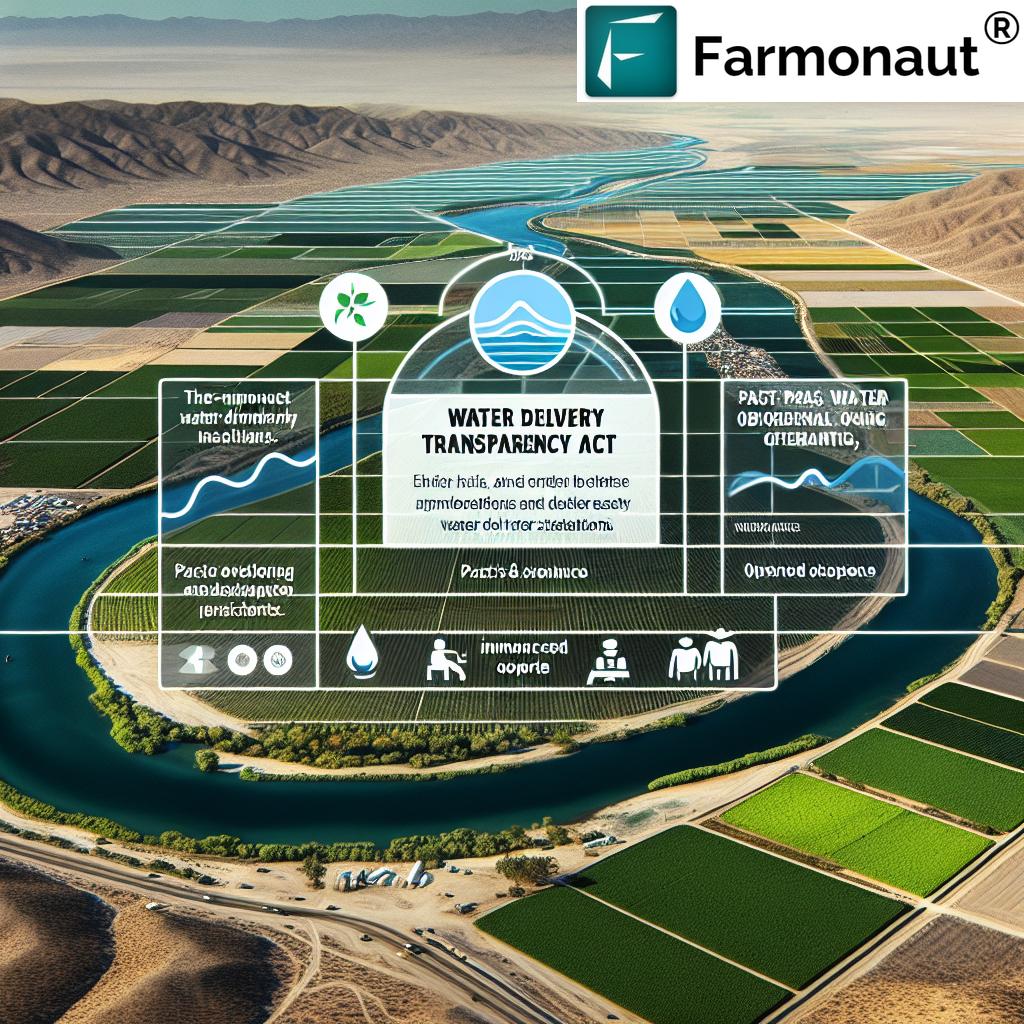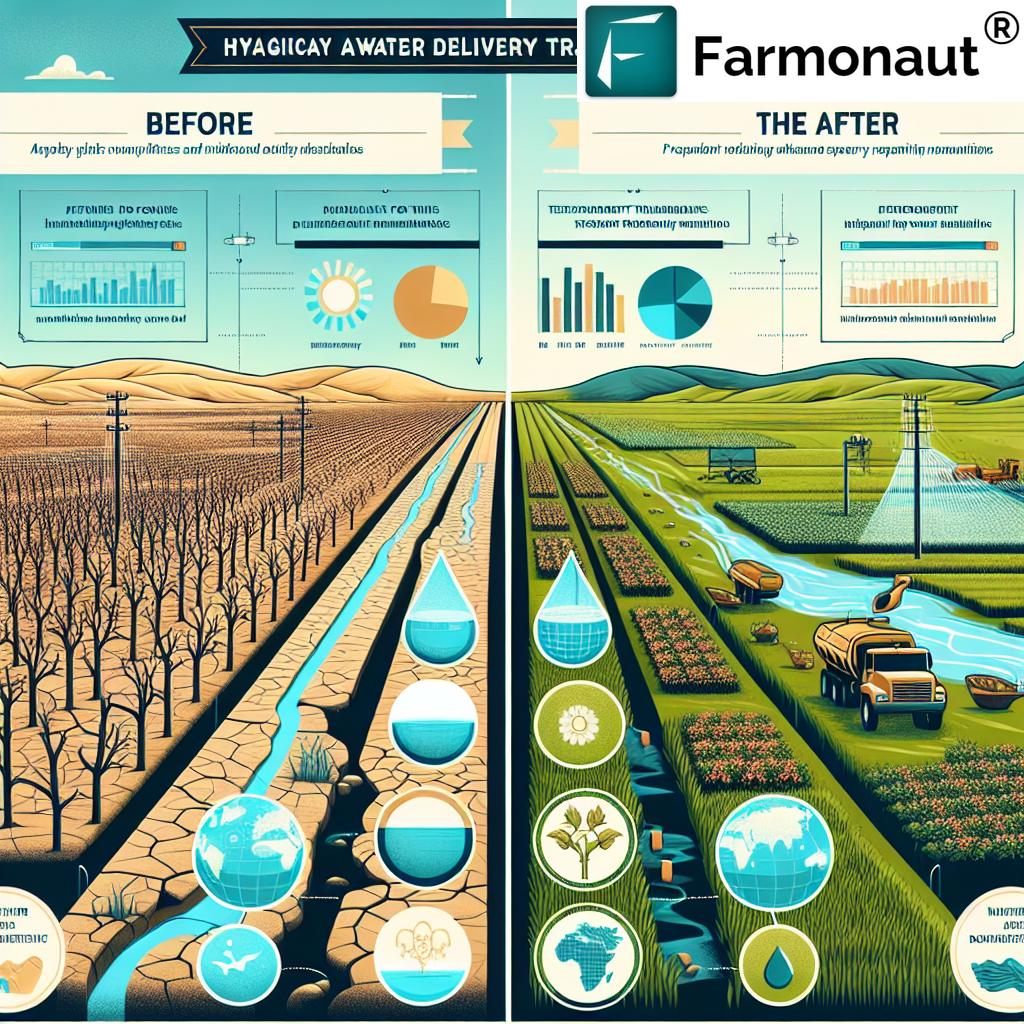Breakthrough: Water Delivery Transparency Act Empowers South Texas Farmers Amidst Rio Grande Crisis

In a significant development for the Texas agriculture community, Congresswoman Monica De La Cruz has introduced the Water Delivery Transparency Act, a groundbreaking piece of legislation aimed at addressing the pressing South Texas water challenges. This act comes as a beacon of hope for farmers and agricultural stakeholders grappling with the ongoing Rio Grande Valley water shortage.
Understanding the Water Crisis in South Texas
The Rio Grande Valley, a vital agricultural region in South Texas, has long been plagued by water scarcity issues. The root of this problem lies in the complex water-sharing agreement between the United States and Mexico, known as the 1944 Water Treaty. This treaty stipulates the allocation of water from the Rio Grande River between the two countries. However, inconsistent Mexico water deliveries have left South Texas farmers in a precarious position, often struggling to meet their irrigation needs.
Farmonaut, a leading agricultural technology company, recognizes the critical nature of this situation. Our satellite-based crop monitoring solutions have helped farmers optimize water usage, but policy-level changes are essential for long-term sustainability. Learn more about our innovative solutions.
Key Features of the Water Delivery Transparency Act
The Water Delivery Transparency Act South Texas is designed to address these challenges head-on. Here are the main components of this landmark legislation:
- Public Forums: The U.S. International Boundary and Water Commission (IBWC) will be required to host regular public forums. These meetings will provide a platform for agricultural stakeholders to voice their concerns and suggestions directly to the officials responsible for managing transboundary water resources.
- Online Portal for Stakeholder Input: An innovative online system will be established, allowing for continuous agricultural stakeholder input. This digital platform will ensure that farmers’ voices are heard year-round, not just during scheduled meetings.
- Transparent Reporting: The act mandates comprehensive reporting on Mexico water treaty compliance. This increased transparency will help hold all parties accountable and provide farmers with crucial information for planning their agricultural activities.

Impact on South Texas Agricultural Water Management
The introduction of the Water Delivery Transparency Act is expected to have far-reaching implications for South Texas agricultural water management. By fostering open communication between farmers, policymakers, and international water management bodies, the act paves the way for more effective Rio Grande water crisis solutions.
Farmonaut’s satellite technology can complement these efforts by providing accurate, real-time data on crop health and water stress. Our API allows integration of this valuable data into existing farm management systems, further enhancing water use efficiency.
U.S. International Boundary and Water Commission: A New Era of Transparency
The act places significant responsibilities on the U.S. International Boundary and Water Commission, pushing for unprecedented levels of transparency in its operations. This move towards openness is crucial for several reasons:
- It allows farmers to understand the complexities of international water agreements better.
- It provides a clear picture of water availability, enabling more informed agricultural planning.
- It creates a mechanism for holding both U.S. and Mexican authorities accountable for treaty compliance.
The increased U.S. International Boundary and Water Commission transparency is expected to lead to more equitable water distribution and improved Mexico water treaty compliance for farmers.
Rio Grande Valley Water Shortage Mitigation: A Collaborative Approach
Addressing the Rio Grande Valley water shortage requires a multi-faceted approach. The Water Delivery Transparency Act is a critical piece of this puzzle, but it’s not the only solution. Other initiatives include:
- Investment in water-efficient irrigation technologies
- Promotion of drought-resistant crop varieties
- Development of water recycling and conservation programs
Farmonaut supports these efforts through our advanced crop monitoring solutions. Our  and
and  provide farmers with valuable insights to optimize water usage and crop yields.
provide farmers with valuable insights to optimize water usage and crop yields.
Texas Agriculture Water Policy Reform: A Model for the Future
The Water Delivery Transparency Act represents a significant step towards comprehensive Texas agriculture water policy reform. By prioritizing transparency, stakeholder engagement, and international cooperation, this legislation sets a new standard for addressing complex water management issues.
Key aspects of this policy reform include:
- Regular review and update of water allocation strategies
- Integration of climate change considerations in water management plans
- Encouragement of water-smart agricultural practices
These reforms are crucial for ensuring the long-term sustainability of agriculture in the region and securing the Rio Grande Valley agriculture future.
The Road Ahead: Challenges and Opportunities
While the Water Delivery Transparency Act is a significant breakthrough, implementing its provisions will come with challenges. These include:
- Coordinating efforts between multiple government agencies
- Navigating the complexities of international diplomacy
- Balancing the needs of various stakeholders, including urban and industrial water users
However, these challenges also present opportunities for innovation and collaboration. Farmonaut is committed to supporting this transition through our cutting-edge agricultural technology solutions. Explore our API Developer Docs to see how our technology can be integrated into broader water management strategies.
Conclusion: A New Chapter for South Texas Agriculture
The introduction of the Water Delivery Transparency Act marks a pivotal moment in addressing the water challenges faced by South Texas farmers. By promoting transparency, stakeholder engagement, and international cooperation, this legislation lays the groundwork for more sustainable and equitable water management practices.
As we move forward, the combined efforts of policymakers, farmers, and innovative companies like Farmonaut will be crucial in ensuring a prosperous future for agriculture in the Rio Grande Valley. Together, we can turn the tide on water scarcity and pave the way for a more resilient and productive agricultural sector.
Stay informed about the latest developments in agricultural technology and water management solutions by following Farmonaut’s updates and leveraging our advanced crop monitoring tools. Together, we can navigate the challenges of water scarcity and build a sustainable future for South Texas agriculture.
